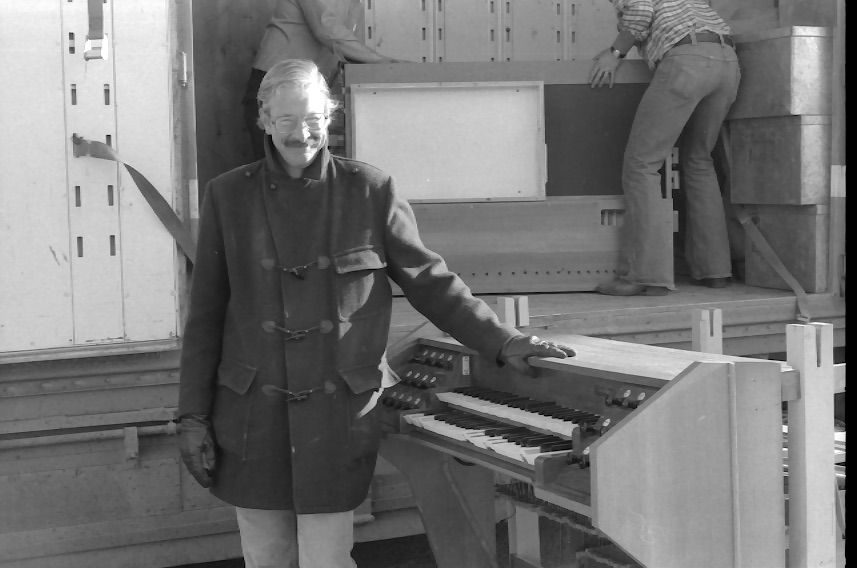Canadian music lost one of its great scholars, musicians and friends this summer. Erich Schwandt uncovered, edited and published two volumes of music of New France from the archives of the Ursulines and Hôtel-Dieu, Québec. The importance of this research should not be underestimated. Erich’s work made pieces available for study and performance that are among the earliest surviving manuscripts of European music on the continent. These include the only copies of work by Baroque French composers, as well as liturgical pieces presumed written in 17th and 18th century New France. I heard soprano Cathy Lewis sing solo motets from this collection in 1977 at the University of Victoria. The following year I took part in performances of choral motets from the same volume, the first performances of this music in at least 200 years.
Photo pictured above courtesy of University of Victoria Archives, PB-078.2303
Erich was a private and modest man of enormous talent, intellect and discipline. His classes were largely in the Socratic method: Erich asked questions, then waited silently for answers, each time quietly nodding yes before asking what else we heard or saw. Erich taught us to be careful, considered, to think deeply. His passion and sensual enjoyment of the music was radiant, too. His specialties included the relationship between music and dance. I took his Baroque dance classes – not for credit, a gift to the students – he was patient with my clumsiness, in contrast to the physical grace of Elissa Poole, Linda Catlin Smith, Donna Zapf and others. When the dance became complex, I was given the role of présence, the seated luminary who watched others dance. The class changed my music, too, especially the gradual speeding towards cadence and release of energy characteristic of French Baroque music and dance, as opposed to the accumulation of energy in Italian music. And we all performed Baroque music better for knowing the steps to the dances.
Erich was tall and elegant, even in sandals and simple clothes. He liked to speak to me in Italian, his nickname for me “Bruno” (the dark one); I called him “Vecchio” (the old one) at his insistence. He delighted in verbal repetition, language and play. How I loved his mischievous, knowing smile, his quick, often absurd quips in conversation, his masterful delivery of jokes, his sudden turn to depart before the punch-line resonated fully. And Erich was generous. He let me play his Pleyel harpsichord to write my first pieces for the instrument, he purchased unusual scores for students, recommended pieces to those he sensed would gain from performing them. He even gave me a pair of new socks when he saw the holes in mine in dance class. His generosity and vision extended to the grand scale, too, arranging the purchase and renovation of the University of Victoria’s Casavant organ, uncovering, editing and performing the missing movement from Erik Satie’s Messe des pauvres. (Erich was a fine harpsichordist and organist.)
He will be missed by all whose lives he touched.
A memorial for Erich Schwandt will be held at Farquhar Auditorium, University of Victoria, on Saturday, September 30 at 2pm.
— Rodney Sharman
Photo courtesy of University of Victoria Archives, PB-078.2303.

